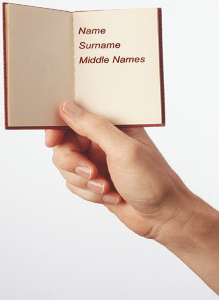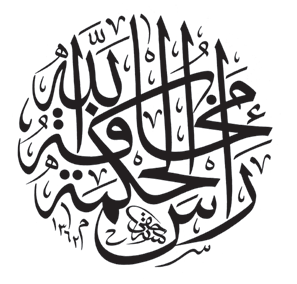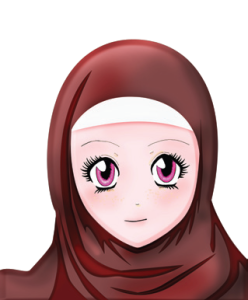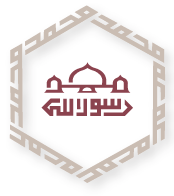6: Women in Islam

Blue Mosque, Istanbul, Turkey
Women Rights
Before the advent of Islam, women had no civil rights. Arabs used to give preference to male babies over female ones to the extent that many fathers used to bury their female babies or children alive.
No gender discrimination
Muhammad condemned discrimination between male and female children and taught his companions to love their children and raise them properly regardless of their sex. In fact, he emphasized giving more care and attention to female children until they grow up and get married. Muhammad said:
“Women are the twin halves of men.” (Tirmidhi, 1/154, 113)
Women inherit like men
Before Islam, women had no right to inherit. Muhammad successfully changed this custom. Females gained the right to inherit like males. However, Muhammad did not create the Islamic inheritance system, but he conveyed God’s Words (preserved in the Quran) which stipulate the portions for each individual (male and female) eligible to inherit.

The word “Muhammad” in Arabic calligraphy being designed in an artistic and symmetrical way. The actual word looks like this. Letters M and H which form the first half of the word “Muhammad” are symmetrical with letters M and D which form the second half of the word “Muhammad” in Arabic.
Women have a unique identity
Before Islam women were considered their men’s personal property. Islam recognized women’s unique identity and gave women human dignity. One of the concrete reminders of this is the Islamic ruling that says women should keep their own surname when they marry. Women can have wealth and Islamic law is protecting also their property. When the husband passes away, the wife is entitled to heritage. She is not a property that is inherited as was the practice before Islam.”

A woman is not a sex tool
Prostitution and adultery are strictly forbidden in Islam. Muhammad indicated: When a person commits fornication or adultery then he/she is not in a state of “Eaman” (faithfulness) (i.e. faith in God has not yet established strongly in his/her heart, therefore the person does not feel guilty or fear God when fornication is committed).
“And don’t approach (come near unto) fornication (unlawful premarital or extramarital sex), Lo! It is an abomination and an evil way”. Quran, 17:32

This calligraphy means:” The peak of wisdom is the fear of God”. Courtesy of calligrapher Ismail Hakki.
Hijab and modesty in Islam

Wearing the headscarf and modest clothing is an obligation on adult women. In addition, Islamic teachings forbid women from using their bodies or femininity for public entertainment and sexual temptation.
Businesses, commercials and advertisements that rely on exposing women’s bodies for temptation and sexual attraction are not allowed in Islam.
Islamic teachings block out the means that could lead to sexual harassment, sexual assault, rape crimes, sexual diseases, and other abominations such as nudity and pornography.
Islam requires modesty from men as well: men are to lower their gazes when they see a woman. Modest dressing is a ruling that concerns men as well.

Get married!
Muhammad encouraged people to get married and establish a family life. He taught his followers noble Islamic values which ban illegal sexual relations other than a normal marital relationship between a man and a woman. (Sahih Al-Bukhari, 3/26, 1905)

A young man asked Muhammad to give him permission to fornicate (have non-marital sex with a girlfriend or a prostitute), Muhammad replied: “Do you accept this for your mother?” The man answered: “No.” Muhammad said: “Likewise people don’t like it for their mothers.” Then he asked the young man the same question three more times: “Do you like it for your daughter, sister, aunt?” Every time the man replied no and Muhammad repeated the same statement: “Likewise, people don’t like it for their daughters, sisters and aunts”. Then Muhammad put his hand on the man’s heart and supplicated to God: “Oh my Lord: forgive his sin, purify his heart and grant him chastity”. (Musnad Ahmad, 10/5220, 22641)
Note:Islam does not accept forced marriages; both man and woman have to agree on the marriage. Man is obliged to pay to his bride (not to the family of the bride) an amount of money that both agree either in money or for example in valuables.### Muhammad empowered women
Within his endeavors to empower women’s roles in the society, Muhammad allocated certain days of every week for women education. He urged them to participate in Islamic events, feasts and prayers. Even housemaids could meet Muhammad, talk to him and seek his help or advice. He also asked women to do a formal pledge (as men did) since they were responsible to the Islamic law.
Women play a crucial role in society as they nurture and raise the next generation who will form the nation. Muslim women were empowered to take an active role in the society without overlapping men’s role. Although priority was always given to the task of raising children and caring for their wellbeing, women used to work and participate in the social and political life.
Muhammad encouraged caring for girls/daughters
Muhammad emphasized on several occasions the good treatment of females and he described them as delicate and “as fragile as glass”. He told his companions that whoever raises his daughters properly and obeys God in caring for them and guiding them to faith, he will gain Paradise.(1)
Muhammad encouraged full respect of mothers

A man asked Muhammad :” Who would deserve my closest support and companionship?” Muhammad replied ” Your mother.” Then the man asked Muhammad who would be after her. Muhammad replied:” Your mother”. The man asked the same question again and Muhammad replied for the third time”: Your mother.” Then out of curiosity the man asked the same question for the fourth time( he realised that Muhammad wanted to emphasise the best treatment of mothers). Then Muhammad said to him : “Your father.” (i.e. your father deserves your closest support and company after your mother)(2) (Sahih Al- Bukhari 2/8, 5971. Muslim, 8/2, 2548)
Scholars commented on the above story that mothers cannot escape three main sufferings :
- Pregnancy
- Labor and delivery
- Breastfeeding and weaning.
Muhammad encouraged good treatment of wives
He stated that if a man disliked one of a woman’s traits he will be pleased with another. And he said: The believers who show the most perfect faith are those who have the best character; and the best of the believers are those who are best to their wives (Tirmithi, 6/188, 3895).
This promotes love, harmony and mutual understanding.
This is the word “Muhammad” in Arabic being designed in a formative style which looks like a flower. Courtesy of Artist Farid Al-Ali.
Divorce in Islam
Divorce is permitted in Islam but it should be the last option after exhausting honest attempts to save the marriage. Should divorce become unavoidable, separation should be on good terms and with kindness.(3)
When women are divorced and they have reached their set time ( a waiting time set to review the decision of divorce) then either you keep them in all decency or release them in all decency (fair manner). Do not hold them with intent to harm them and commit aggression: anyone who does this wrongs himself. Quran, 2:231
Muhammad loved his wife

A few years after his first wife Khadijah passed away, Muhammad got married to Aisha, the daughter of his closest friend Abu-Bakr. Despite his loyalty to his late wife, he loved Aisha and was honest to her. He was asked once by Amr bin Al-Aas (a companion):
Who is the most beloved person to you?” Muhammad replied without hesitation: Aisha. (Al-Bukhari, 5/5, 3662)
Confirm your love to your wife
Aisha narrated that Muhammad described his love to her like a knot firmly tied on a rope. Aisha used to ask Muhammad from time to time “how is the knot” and Muhammad used to confirm his love to her. He said:“The knot is still tied as firmly as it used to be.”
Muhammad demonstrated exemplary loyalty to his late wife Khadijah
Muhammad used to ask Aisha to send a serving of food to the friends of his late wife Khadijah every time Aisha cooked a sheep or an ewe.Muhammad mentioned to Aisha that no one was better than Khadijah at her time, she believed him when he first received God’s revelation while many people did not (some of his uncles and relatives did not believe him). She consoled him with her money and supported him without hesitation.Despite the fact that some people may view Muhammad’s comments about his late wife Khadijah as it was triggering jealousy in his current wife Aisha, he was a fair and a loyal husband to his wives.
Muhammad and polygamy
Muhammad did not introduce polygamy
In fact polygamy existed before Islam without any limit in number. It was very common for a man to have more than one woman either as wives or as concubines or slaves.(4)It is known that Prophet Abraham was married to Sara, the mother of Isaac and Hagar, the mother of Ishmael. Also, it is narrated that Jacob had four women, two wives and two concubines.(5)
Muhammad lived most of his life married to one woman

He was married to Khadijah for almost 25 years and he was a father of four girls and two boys. Both of his sons died in their childhood.After Khadijah passed away he married a poor old widow called “Sawdah”. Her husband passed away after they returned from Abyssinia, the country where Muhammad sent some of his companions to seek refuge.His marriage to Sawdah was a form of support for her. Muhammad was almost 50 years old when he married Sawdah, who was older than him.
Muhammad married the daugher of his closest companion Abu-Bakr
A few years later, Muhammad married Aisha, the daughter of his closest friend and most supportive companion Abu-Bakr. The marriage was an honour for Abu-Bakr and Aisha.
Muhammad married the daughter of his second closest companion Omar
Two years later, Hafsa, the daughter of his second closest companion Omar, lost her husband in the battle of Uhud and became a widow. Omar preferred that his daughter gets married to one of his trusted friends but no one proposed to her. Then Muhammad took the initiative and proposed to her. The marriage was an honour and support for Omar and his daughter Hafsa.
Muhammad married a Muslim widow who was the daughter of his enemy
Ramlah was known by the nickname “Um Habibah”. She was the daughter of the top man in Makkah (Abu-Sufyan). Although Abu-Sufyan did not believe Muhammad and fought him for 20 years, his daughter embraced Islam.She was one of the early Muslims who migrated to Abyssinia with her husband and lived there for almost 15 years.Her husband converted to Christianity and passed away there. She was left alone in Abyssinia, so Muhammad proposed to Um Habibah and she accepted and got married to him. Surprisingly, one year later, her father embraced Islam.
Muhammad married Safiyya, a woman from a Jewish tribe
Bani Al-Nadhir was one of the Jewish tribes who betrayed Muhammad and worked against him. After Muhammad besieged them in their city Khaybar, they surrendered.

Safiyya, the daughter of their leader was amongst those who were captured. Muhammad released her and proposed marriage to her. Safiyya accepted and they were married.Muhammad proved to all people that he had nothing against the Jewish community but aggressors had to be stopped regardless of their race or faith.On several occasions and even after Muhammad passed away, Safiyya described him as a loving and fair husband.(Tirmithi, 6/188, 3894. Musnad Ahmad, 5/2609, 12587)
Mariya the Copt

In the same year, Muhammad sent a messenger to the ruler of Egypt who was Christian, calling him to accept the message of Islam.The ruler of Egypt replied with a polite apology and sent Muhammad some gifts as well as a physician and a servant or concubine called Mariya (Mary). Muhammad accepted the Egyptian ruler’s gifts. He married Mariya and later on she gave birth to a baby boy named Ibrahim. Ibrahim died when he was a little boy and Muhammad was very sad for losing him.(6)
Muhammad conveyed God’s command to control polygamy
Islam didn’t forbid polygamy but it restricted and regulated it. In Islam, it is not compulsory to marry more than one wife but it is permissible for genuine reasons.A man can marry a second wife if he can demonstrate full respect, justice and impartiality to his wives. Verse 3, Chapter 4 in the Quran indicates clearly that a man cannot marry more than one woman if he cannot treat them rightly and impartially.Also, the verse puts a limit of four wives only for unbiased and fair husbands.Before this revelation, men used to have scores of wives with no limits or conditions.
Limits on Prophet Muhammad
Prophet Muhammad was married to more than four wives before this revelation. Being wives of the “Messenger of God” was a great honour to them besides their being regarded as the mothers of believers. God revealed in the Quran that Muhammad’s wives were lawful to him. However, no more women could be married to Prophet Muhammad even if he divorced any of his wives.(7)
Limits on Prophet Muhammad’s wives
Muslims were not allowed to marry any of the wives of Prophet Muhammad after he passed away because they were like their mothers.In the Quran, God described the wives of the Prophet as being unlike other women (they should be seen by other Muslims as exemplary and as the mothers of believers).
If any of the Prophet’s wives committed a manifestly sinful deed, the punishment would be doubled for her. But if any of the Prophet’s wives devoutly obeyed God and His Messenger and performed righteous deeds, she would receive double rewards.
Muhammad’s wives had freedom of choice: God asked Muhammad (as indicated in the Quran, chapter 33 verses 28,29) to give his wives two options, either be released (i.e. divorced) if any of them desired the world’s life and its adornment, or stay married to Prophet Muhammad and devote their lives fully for the cause of Islam.All of them chose the second option and all of them stayed married to Prophet Muhammad. After Muhammad passed away, none of them remarried.
Endnotes
- According to other narrations prophet Muhammad indicated that whoever had one or two or three daughters and he properly looked after them (until they became independent) he would get into God’s Paradise.
- The Quran emphasized in many verses that a person must be good to both parents (e.g. Chapter 17, Verse 23).
- See also the Quran (Chapter 2, V 229 -232)
- Regarding polygamy in other religions, earlier, there were no restrictions even in Hindu religion. It was only in 1955, when the Hindu Marriage Act was passed that it became illegal for a Hindu to have more than one wife. At present, it is the Indian law that restricts a Hindu man from having more than one wife and not the Hindu scriptures. Polygamy is still allowed to Hindus in Goa under certain circumstances.
- For more details from Christian sources about Jacob’s family, see Genesis 32:22-24.
- Muhammad was very sad for the loss of his son Ibrahim. It is narrated that he cried in front of his companions. Prophet Muhammad told his companions that that a believer should accept God’s fate.
- Please see the Quran, Verses 50, 51, 52, Chapter 33, regarding the wives of Prophet Muhammad.
